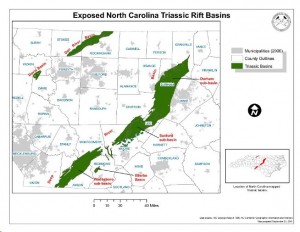Documentary ‘Fracking Stories’ screened at Cameo Art House
From an Article by Andrew Barksdale, Fayetteville Observer, NC, May 25, 2015
A collection of short documentaries describing the dangers of hydraulic fracturing was screened in downtown Fayetteville. The true stories were told by residents in states where oil and natural gas are being extracted from deep below the earth through a controversial process commonly referred to as “fracking.”
In one Colorado community, parents said their children developed asthma and allergies and had nose bleeds as a result of living next door to stations that burn off excess gas or condense it for transport.
In a Texas town, church members talked about the division between those who are earning money from royalty payments generated by horizontal drilling. “But for those who are getting sick, it has become a curse to our community,” one church member told the camera.
In North Carolina, Republican lawmakers were hoping this year to join the energy boom that has brought new wealth and job growth in those states. But two pending lawsuits over how North Carolina’s fracking rules were drafted have led a Wake County Superior Court judge earlier this month to temporarily halt the issuance of any drilling permits until the state Supreme Court decides the issue this summer.
The audience of 15 people who went to the Cameo Art House to watch the 36-minute “Fracking Stories” film was sympathetic to its anti-fracking message, and some expressed concerns over the news last week that core samples under a state contract would be drilled in Fayetteville soon to determine whether oil and gas deposits exist.
In the film, the residents call themselves “fracktivists,” because they have actively sought to restrict the industry in their backyards.
Donna Andrews, a Fayetteville resident, asked if Fayetteville officials have concerned themselves with taking the same course against fracking. Denise Bruce, the green action coordinator for Sustainable Sandhills, said state laws would preempt any local rules that would seek to outlaw the fracking industry from operating within a jurisdiction. “Are you saying they can do what they want?” Andrews asked. Bruce answered, “Pretty much.”
Sustainable Sandhills, a Fayetteville-based environmental nonprofit, was responsible for bringing “Fracking Stories,” which has scheduled a repeat screening for June 4 at 7 p.m. at the Cumberland County Headquarters Library.
Geological studies indicate a shale basin extending through parts of Lee, Moore and Chatham counties have the most potential for gas exploration, and state Republican officials have said horizontal drilling and fracking can be done more safely today, thanks to improved technology and a modern set of rules.
One of Saturday’s audience members, Connie Blacketer, 59, is not convinced those state officials are correct. “I think everyone needs to become informed so that they will have a really good idea of what this could do to our environment and to our health,” she said.
>>>>>>>>>>>>>
North Carolina Judge Says No to Fracking
From an Article by Anastasia Pantsios, EcoWatch.com, May 21, 2015
A judge in North Carolina has blocked the start of fracking in that state over a challenge to the membership of the commission charged with issuing the permits. “Finally some good news in our long battle to keep fracking out of NC!” exulted North Carolina environmental nonprofit Haw River Assembly, one of the parties to the lawsuit.
The Southern Environmental Law Center (SELC) was granted the preliminary injunction it sought in Wake County Superior Court to delay the state’s Energy and Mining Commission from taking any action on permits, effectively reinstating (for the time being) the state’s longtime moratorium on fracking which was lifted by the legislature last summer. The group was representing the Haw River Assembly, a member of the Waterkeeper Alliance network, and landowner Keely Wood Puricz, whose property abuts a tract leased for natural gas exploration.
“The citizens of North Carolina deserve to have a lawful, accountable and representative agency to put in place strong protections that safeguard our communities and water supplies from the risks and harms of fracking,” said Elaine Chiosso, executive director of the Haw River Assembly. The group has members who live directly above shale deposits that could be targeted for fracking.
The dispute revolves around what SELC and the parties it represents see as an unconstitutional attempt by the state legislature to control the commission and violate the state’s separation of powers. After establishing the commission in 2012, it gave itself the power to appoint eight members to the governor’s five. Governor Pat McCrory, along with two former North Carolina governors, is challenging the practice in a separate lawsuit. The legislature used the same tactic to keep control of the state’s Coal Ash Commission, Oil and Gas Commission, and North Carolina Mining Commission.
“The decision stopped any immediate harm to North Carolina residents from a commission formed by the state legislature in violation of the separation of powers firmly established in our state constitution pending further court deliberations,” said John Suttles of SELC, who represented the parties challenging the commission’s membership.
“This attempt by the North Carolina legislature to expand its legislative power and usurp executive authority violates the separation of powers firmly established in our state constitution,” added Derb Carter, SELC senior attorney and director of its North Carolina offices. “As a result, we have a commission making important decisions about the future of North Carolina that is ultimately accountable to no one. We are seeing emerging and increasing opposition to fracking in North Carolina, and this will allow the public in many ways to continue to voice their concerns.”
While North Carolina is not known as a gas-rich state, there are believed to be some deposits in a strip of counties in the central part of the state, south of Wake County (Raleigh/Durham/Chapel Hill). It’s unclear exactly how much gas that area could produce.
“Approximately 59,000 acres in rural Lee County alone are expected to be targeted for drilling, with unknown additional acreage in Chatham, Moore and Durham Counties,” says North Carolina-based social justice/family farmer advocacy group Rafi-USA, which warns against “compulsory pooling” forcing landowners to sell their mineral rights. “Over 9,400 acres in Lee County have already been leased by gas companies under predatory mineral rights leases. Always speak with a lawyer when considering signing a lease.”
“Hydraulic fracturing and horizontal drilling have been used in parts of the Midwest for years, and are now being used in Pennsylvania and New York as well,” it warns. “Landowners and farmers in these states have expressed concerns about the effects that drilling have on their lives and livelihoods.”



{ 1 comment… read it below or add one }
http://marcellus.com/news/id/124543/films-bring-fracking-to-forefront/
Films bring fracking to forefront
By Jaymie Baxley, The Robesonian, Lumberton, N.C., May 31, 2015
PEMBROKE — “Fracking Stories,” a series of short documentaries about the public health and environmental consequences associated with hydraulic fracturing, will be screened Thursday at the Pembroke Public Library.
The six films that comprise “Fracking Stories” form “a cautionary tale of what happens when this industry comes to town,” according to a press release. Sponsored by the Winyah Rivers Foundation, the free event is part of a tour that includes a dozen stops across North Carolina.
“As an advocate for clean water and healthy communities, we are co-hosting the Pembroke screening to raise awareness and spur action locally,” said Christine Ellis, the foundation’s river advocate. “The close proximity of the Cumberland-Marlboro shale basin and potential impacts that would result from fracking there [could affect] communities in Hoke, Scotland and Robeson counties.”
Rules governing fracking that were developed by the Mining and Energy Commission took effect in March, clearing the way for the state to start issuing drilling permits. Before asking the Department of Environment and Natural Resources for a permit, applicants must acquire mineral rights for several hundred acres of land — a parcel known as a drilling unit — and have the unit approved by the commission.
“Even as lawsuits are challenging the Mining and Energy Commission and stopping fracking permits, resistance to fracking is still growing across our state,” said Hope Taylor, executive director of the nonprofit Clean Water for North Carolina. “The ‘Fracking Stories’ films provide us with a major new tool to build awareness, and we are eager to share them with communities across the state.”
Clean Water for North Carolina is one of several nonprofits sponsoring the tour. Other sponsors include the Blue Ridge Environmental Defense League, Appalachian Voices and Working Films.
The event will begin at 6:30 p.m inside the Pembroke Public Library, which is located at 413 Blaine St. For information, call Ellis at 843-267-3161 or email christine@winyahrivers.org.